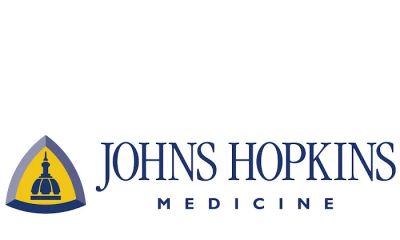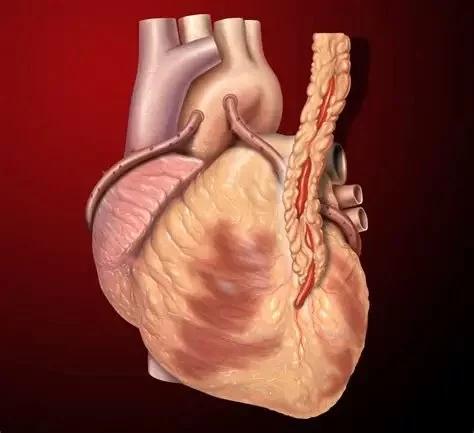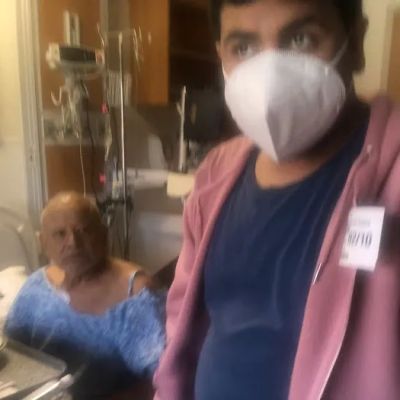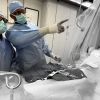Coronary Artery Bypass Grafting (CABG): What to Expect from Bypass Surgery
- What Is CABG Surgery?
- The CABG Procedure
- CABG Recovery: What to Expect
- Potential Risks and Complications of CABG
- Post-Surgery Care for CABG
1. What Is CABG Surgery?
Coronary Artery Bypass Grafting (CABG) is a common surgical procedure performed to improve blood flow to the heart. It is often used to treat coronary artery disease (CAD), where the arteries supplying blood to the heart become narrowed or blocked due to plaque buildup. The procedure involves taking a healthy blood vessel from another part of your body, typically from the leg, arm, or chest, and using it to bypass the blocked artery, allowing blood to flow more freely to the heart muscle.
CABG surgery is a life-saving procedure that can help relieve symptoms such as chest pain and shortness of breath caused by coronary artery disease. It can also improve the quality of life for people who have severe CAD and reduce the risk of heart attacks. Let’s dive deeper into how this surgery works and what you can expect during the process.

2. The CABG Procedure
The CABG procedure is typically performed under general anesthesia, meaning you will be asleep throughout the surgery. The surgeon will make an incision down the middle of your chest and, in some cases, may also make smaller incisions to access other areas of the body from which the graft will be taken.
Johns Hopkins Cardiac Surgery
johns hopkins cardiac surgery
8600 Old Georgetown Rd, Bethesda, MD 20814, USA

2.1 Preparation for CABG
Before the surgery, your healthcare team will perform a series of tests to assess your heart health, such as electrocardiograms (ECGs), blood tests, and imaging scans. This is to ensure that you are physically ready for the surgery. You will also be given instructions on how to prepare, including fasting and stopping certain medications to reduce the risk of complications.
2.2 The Bypass Process
Once you're anesthetized, the surgeon will remove a healthy blood vessel, typically a vein from your leg or an artery from your chest or arm. This vessel is then grafted onto your coronary artery, bypassing the blockage. If multiple blockages are present, more than one graft may be used, and the procedure could take several hours.
2.3 After the Surgery
After the surgery is complete, you will be moved to the recovery room for monitoring as the anesthesia wears off. It is common to experience some discomfort, but pain medications will be provided to help manage any post-operative pain. The medical team will closely monitor your heart rate, blood pressure, and overall condition during the early stages of recovery.
3. CABG Recovery: What to Expect
The recovery process after CABG surgery can vary from person to person, depending on factors like age, overall health, and the complexity of the surgery. However, there are general stages of recovery that most patients go through.
3.1 The First Few Days
During the first few days following surgery, you will likely stay in the hospital. Your medical team will monitor your heart function, check for any complications, and help you begin your physical recovery. Most patients are encouraged to start walking short distances as soon as possible to help promote circulation and prevent complications such as blood clots.
3.2 Weeks Following Surgery
As you leave the hospital and begin your recovery at home, you may experience soreness, swelling, and fatigue. These are normal after heart surgery and should gradually improve over time. Your doctor will provide you with guidelines on when to resume light activities and will recommend avoiding heavy lifting and strenuous exercises for several weeks. It is also important to follow up with your doctor regularly for check-ups to monitor your progress.
3.3 Long-Term Recovery
The full recovery time for CABG can take several months. It’s crucial to focus on improving your overall health during this time by adopting a heart-healthy diet, exercising regularly (with approval from your doctor), and managing any chronic conditions like high blood pressure or diabetes. The success of CABG depends on how well you take care of yourself in the long run.
4. Potential Risks and Complications of CABG
Like any major surgery, CABG carries certain risks and potential complications. While most people recover without major issues, it’s important to be aware of what could go wrong.
4.1 Infection
As with any surgery, there is a risk of infection. This can occur at the incision sites or in the heart. Your medical team will take precautions to prevent infection, and they will closely monitor your condition for signs of infection during your hospital stay.
4.2 Bleeding
Excessive bleeding is a possible complication, especially in the early stages after surgery. Your healthcare team will carefully monitor your blood levels and take necessary steps to address any bleeding issues promptly.
4.3 Heart Arrhythmias
It’s common for patients to experience irregular heartbeats (arrhythmias) in the immediate aftermath of CABG surgery. These usually resolve on their own or with medication, but they can cause concern during recovery.
5. Post-Surgery Care for CABG
Post-surgery care is essential to a successful recovery after CABG. Proper care includes medication management, attending follow-up appointments, and making necessary lifestyle changes to improve heart health.
5.1 Medication
After surgery, your doctor will prescribe medications to help manage pain, prevent blood clots, and support heart function. It’s important to follow the prescribed medication regimen carefully and attend all follow-up appointments to ensure everything is on track.
5.2 Lifestyle Changes
Adopting a healthy lifestyle is key to the long-term success of CABG surgery. This includes quitting smoking, managing stress, exercising regularly, and eating a balanced, low-fat diet. Your doctor may recommend working with a dietitian or cardiac rehabilitation specialist to help you transition to a heart-healthy lifestyle.
At HeartCare Hub, we provide helpful resources and products to support your heart health, including dietary supplements, exercise programs, and heart-healthy recipes. Visit us to find the best solutions to help you maintain your heart health after CABG surgery.






















UVA Health UVA Cardiology, part of Culpeper Medical Center
uva coronary care unit
501 Sunset Ln, Culpeper, VA 22701, USA